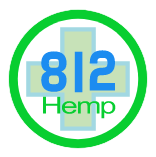If you’re curious about the necessity of a doctor’s prescription for Delta 8, Delta 9, or CBD, rest assured that it is not required. These products can be purchased without a prescription.
Nevertheless, it is crucial to have a comprehensive understanding of their mechanisms before incorporating them into your wellness routine. In this blog post, we will delve into each of these substances, providing an overview and offering valuable tips for their safe and effective use.
Delta 8, Delta 9, and CBD
Navigating the differences between Delta 8, Delta 9, and CBD can be a source of confusion for many individuals. These compounds all belong to the cannabinoid family, which are naturally occurring substances found in cannabis plants. Delta 8 and Delta 9 are both tetrahydrocannabinol (THC) compounds, but they exhibit varying levels of psychoactive effects. While Delta 9 is commonly associated with a stronger euphoria or “high,” Delta 8 is generally considered milder, offering a potentially more gentle experience with fewer side effects when used responsibly.
In contrast, CBD is a non-psychoactive compound that does not induce any intoxicating effects. Instead, it may offer a wide range of health benefits, such as relief from inflammation-related pain. Before incorporating any of these compounds into your medicinal or recreational regimen, it is crucial to grasp their distinctive characteristics and effects. By gaining this understanding, you can make informed decisions regarding their appropriate use to suit your specific needs and preferences.
Medical Applications
The medicinal use of cannabis products has an extensive history dating back centuries, and ongoing research continues to shed light on their therapeutic potential. Cannabis has shown promise in relieving chronic pain and managing symptoms associated with conditions like Alzheimer’s disease and cancer. For instance, it may alleviate chemotherapy-induced nausea. As research progresses, cannabis-based products for medicinal purposes have the potential to contribute significantly to improved health and overall well-being.
While Delta 8, Delta 9, and CBD all belong to the same family of cannabinoids, each compound exerts its unique effects. It’s important to note that a doctor’s prescription is not required for using these substances medicinally. However, seeking guidance from a healthcare professional is advisable, particularly if you have underlying health conditions or are taking pharmaceutical medications. Consulting with a doctor can provide valuable insights on safely managing the effects of these substances. When utilized responsibly and in accordance with expert guidance, these substances offer a wide range of potential benefits for various ailments. Ultimately, the decision to incorporate them into your wellness routine rests with you, but ensuring an informed choice maximizes the chances of success. Discover the ideal product for your needs today!
*The statements made regarding these products have not been evaluated by the Food and Drug Administration. The efficacy of these products has not been confirmed by FDA-approved research. These products are not intended to diagnose, treat, cure or prevent any disease. All information presented here is not meant as a substitute for or alternative to information from healthcare practitioners. Please consult your healthcare professional about potential interactions or other possible complications before using any product. The Federal Food, Drug, and Cosmetic Act requires this notice.



